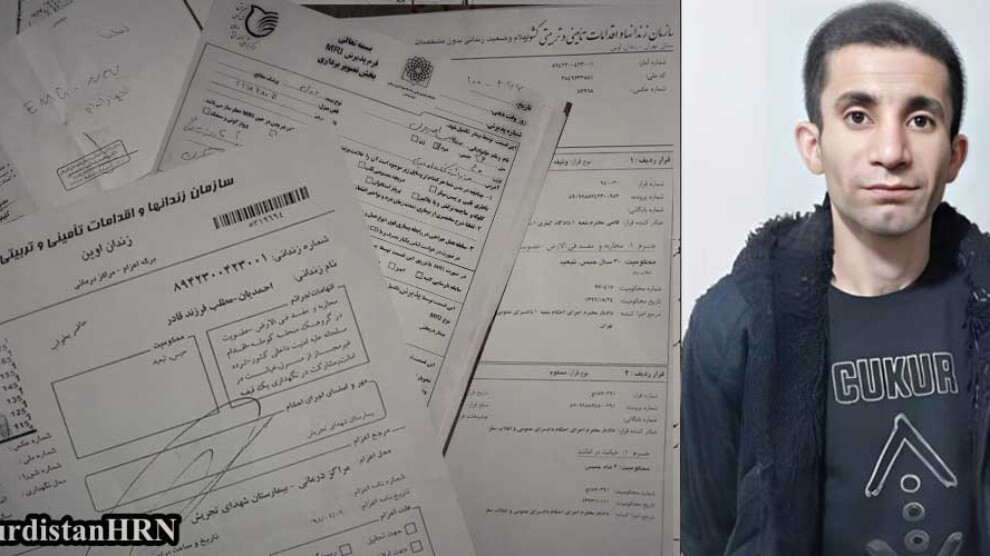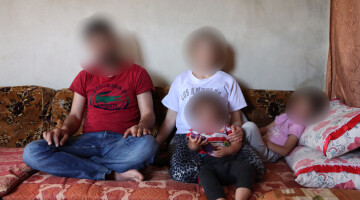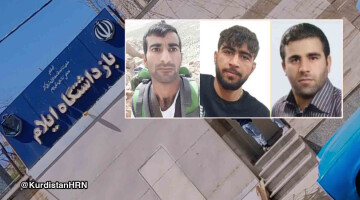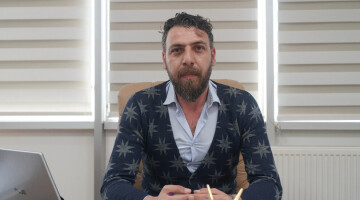Motalleb Ahmadian, a 42-year-old Kurdish political prisoner serving the 15th year of a 30-year sentence in Tehran’s Evin Prison, went on a hunger strike on 5 May, protesting the Tehran Prosecutor’s refusal to grant him medical leave or suspend his sentence despite his deteriorating health.
Ahmadian suffers from a number of serious illnesses, including duodenal cancer, diaphragmatic hernia, spinal canal stenosis, and a urinary tract infection.
According to the Forensic Medicine Organisation and prison medical staff, he needs urgent surgery and a long recovery period outside prison.
At the beginning of his hunger strike, Ahmadian published an open letter describing his medical condition and accusing the Tehran Prosecutor of obstructing his treatment.
Full text of the political prisoner’s letter, released by the Kurdistan Human Rights Network (KHRN), reads as follows:
My name is Motalleb Ahmadian. I am 42 years old and I am from Kurdistan.
I have been serving my sentence in the prisons of the Islamic Republic for over fifteen years. During this time, I have witnessed countless violations of my rights and the rights of other prisoners. In the first year of my imprisonment alone, I endured severe physical and psychological torture – from having my teeth smashed to being beaten so severely on the back that three vertebrae in my spine were broken – a permanent reminder of that time.
From the beginning of my struggle against the prevailing oppression and injustice, I always had two choices. Either I could remain silent and accept the oppression and discrimination, or I could stand up to it and fight to change the status quo.
I chose to resist. I stood my ground, and the price I paid for that choice was a 30-year prison sentence, half of which I have now served. Today, however, I face a different kind of dilemma.
For some time now, I have been suffering from a tumour in my duodenum, which has caused severe digestive problems. These complications have forced me into extreme dietary restrictions and reliance on strong painkillers, which in turn have caused further damage to my body. I have made several attempts to get proper treatment.
According to the prison infirmary, the Forensic Medicine Organisation and several doctors, I need urgent surgery. This includes open surgery on my diaphragm, stomach and umbilical hernia, which will have to be done in several stages.
I also urgently need surgery on the three fractured vertebrae in my spine and spinal canal.
Doctors and the Forensic Medicine Organisation have confirmed that the recovery period for these operations must take place outside of prison.
Despite the fact that seven lawyers and government officials have agreed to act as guarantors, and that my family has secured a bail of 50 billion rials (the maximum they can afford), the Tehran Prosecutor has refused to suspend my sentence to allow for medical treatment.
Faced with this situation, I have decided to stand up not only for myself, but in solidarity with all prisoners who are denied their fundamental rights and human dignity, in particular the right to timely and adequate medical care, and to go on hunger strike from Monday 5 May 2025 in protest at the blatant violation of my rights.
It is clear that the responsibility for the consequences of this hunger strike lies with the judiciary, the Prison Organisation, and the security services.
Motalleb Ahmadian
Political Prisoner – Ward 4, Evin Prison
Deprivation of Medical Care: Ahmadian’s Critical Condition
Ahmadian, a Kurdish political prisoner suffering from duodenal cancer, diaphragmatic hernia, spinal stenosis and urinary tract infection, has lost over 35 kilos due to the continued denial of specialist medical care. His condition is now considered critical and worrying.
In June 2024, he was transferred once to a medical facility outside prison, but was returned to Evin Prison before his treatment was completed.
Ahmadian has long highlighted the impact of medical neglect on his deteriorating health. In a letter written in January 2020, Ahmadian described his worsening health condition, attributing it to the denial of timely medical care. He noted infections in the testicular region and fractures in three vertebrae caused by torture during detention.
He wrote: “Unfortunately, the prison authorities refused to cover the costs of my surgeries and medications. According to the Prisons Organisation’s regulations, these expenses should be borne by the prison, but I had to pay all costs myself. Due to financial constraints, I stopped seeking further treatment.”
Ahmadian, from Baneh, Kurdistan Province, was arrested on 5 October 2010. After eight months in solitary confinement under severe physical torture at security detention centres in Sardasht, Saqqez, and Sanandaj, he was sentenced to 30 years in prison and exile to Minab Prison on charges of “enmity against God” (moharebeh) due to alleged membership of the Komala Party of Iranian Kurdistan.
Additionally, in two separate cases, he was sentenced to one million rials in fines and one year in prison for “unauthorized crossing of the country’s borders” and nine years in prison, half a full diya (blood money), and a 200-million-rials fine for “complicity in murder”.
Since his arrest, Ahmadian has been held in the prisons of Saqqez, Sanandaj, Rajai Shahr, and Evin.














